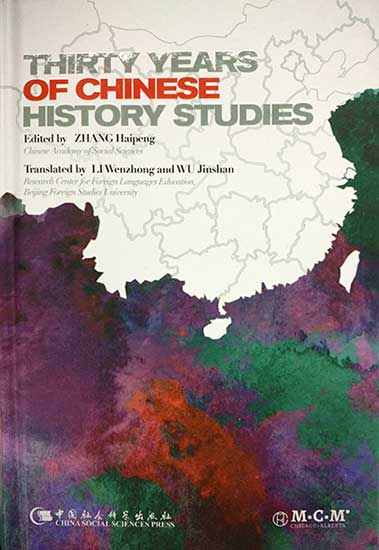Toward a global community of historians

Thirty Years of Chinese History Studies
Editor: Zhang Haipeng
Publisher: China Social Sciences Press
As the 22nd International Congress of Historical Sciences was convened in China, China Social Sciences Press published a comprehensive academic compilation—Thirty Years of Chinese History Studies (English version) to help foreign scholars better understand Chinese history.
The book covers imperial and modern China as well as the initial stages of the economic reforms with an intention to promote conversations between Chinese and overseas academics.
Zhang Haipeng, president of Association of Chinese Historians and the book’s editor-in-chief, considers the English version “a milestone in China’s academic communication of historiography with the world.”
Thirty Years of Chinese History Studies was first released in Chinese in 2008. Zhang together with more than 20 renowned experts in the field participated in the compilation.
The book is categorized into a series of topics, stressing problem orientation and theoretical innovation, rather than a rigid classification based on disciplines. It highlights the main progress in Chinese historical studies in the 30 years from 1978 to 2008 and carries on an in-depth exploration of important subdisciplines and the main research objects in history study.
The book covers 22 topics, ranging from Chinese archaeology, socioeconomic history, urban history and religious history, as well as research into scientific history, world history, WWII history, postwar international relations and progress on the Xia-Shang-Zhou chronology project. It also compiles historical information from the Qing Dynasty (1616-1911), revealing the rich contents of Chinese historical studies.
These topics mostly revolve around key academic issues of interest and theoretical breakthroughs.
French historian Robert Frank, secretary-general of International Committee of Historical Sciences, strongly recommends the book to Western historians.
“When you talk about a nation’s history, you also have to insert it into a global perspective. That means you need to integrate the history of others (in such studies),” he said at the congress.
